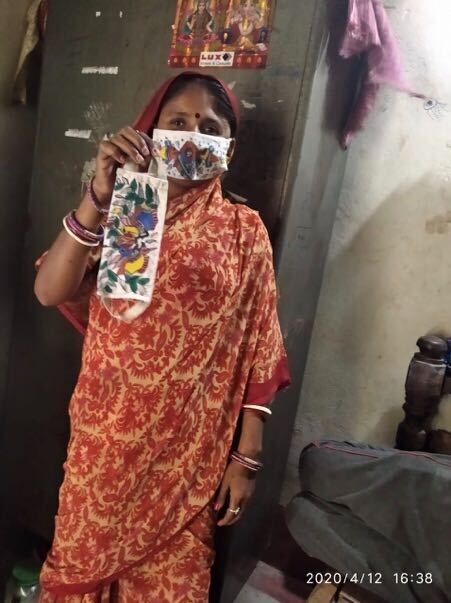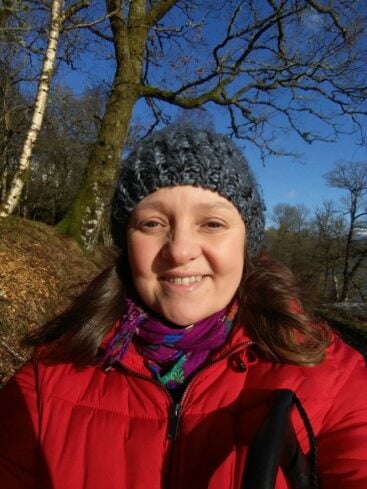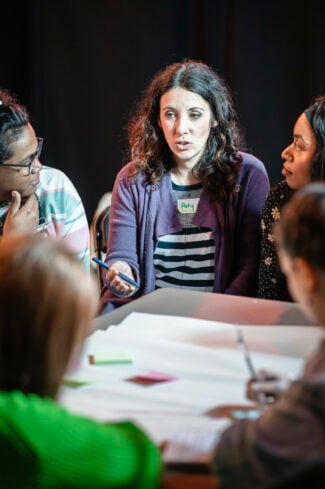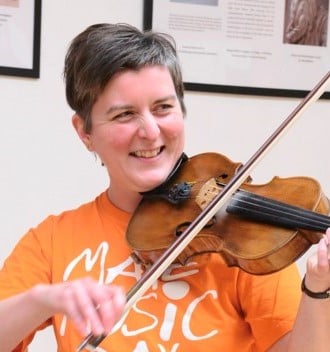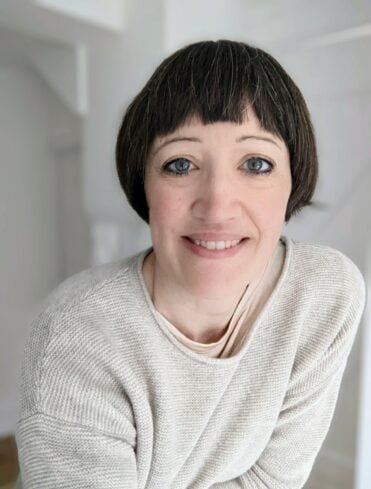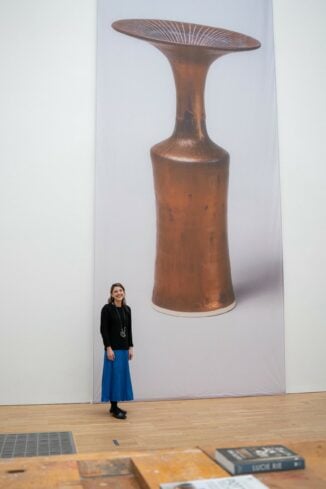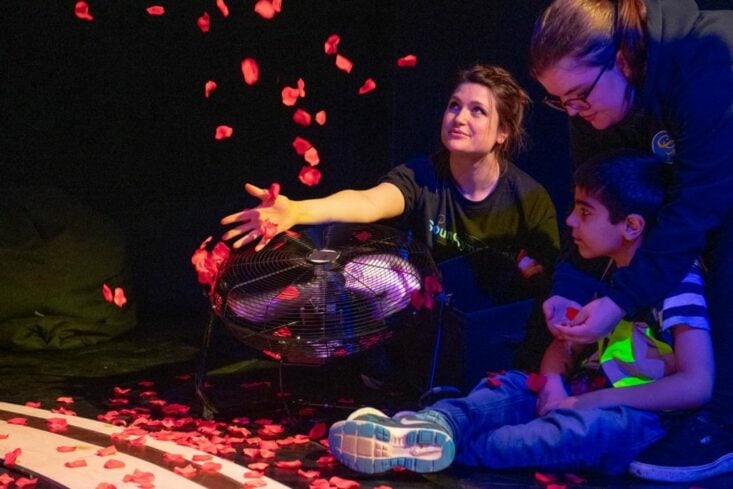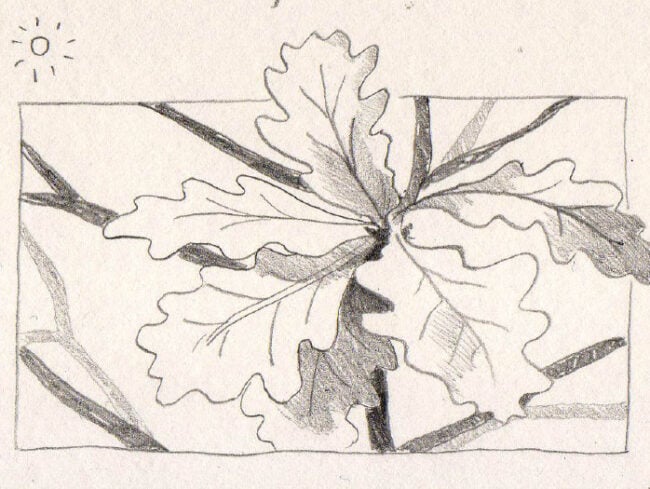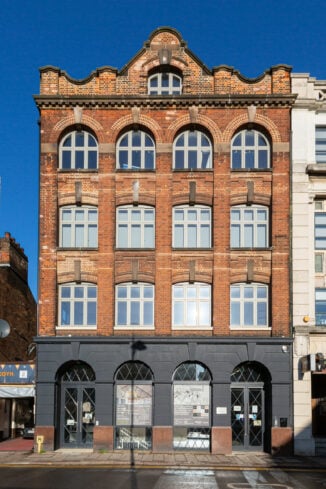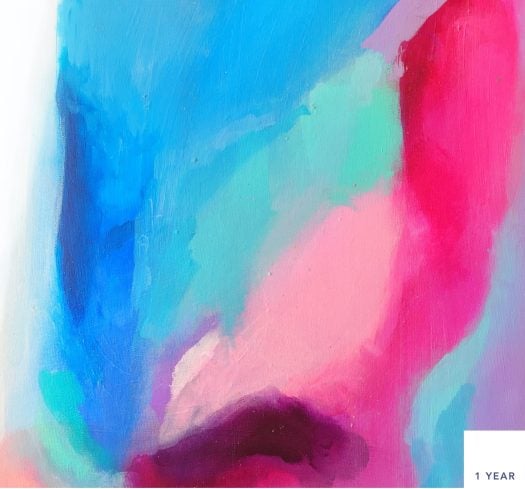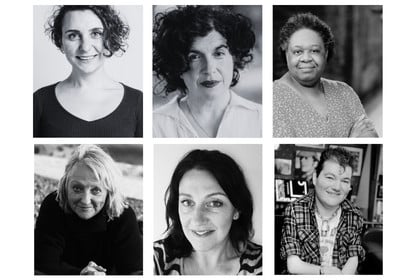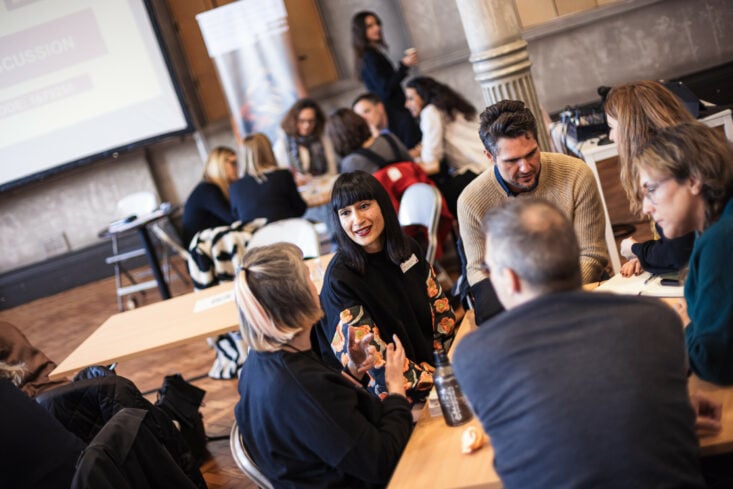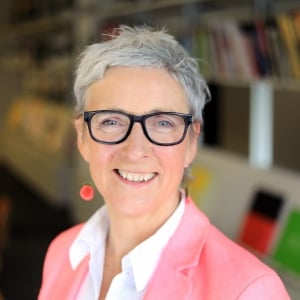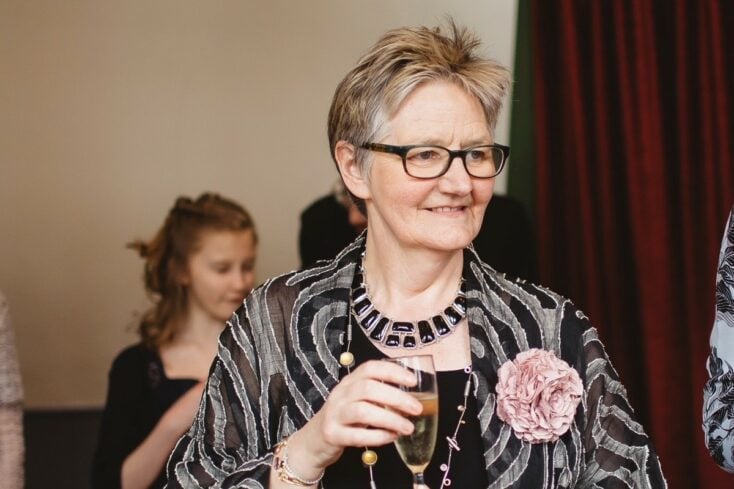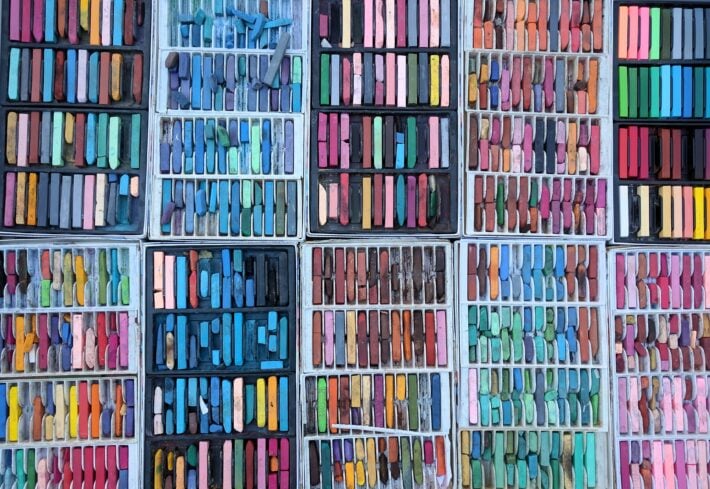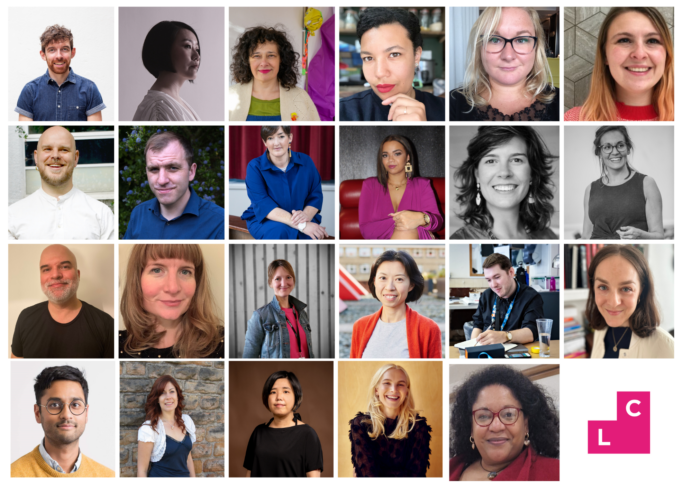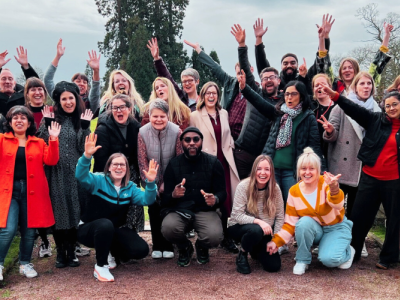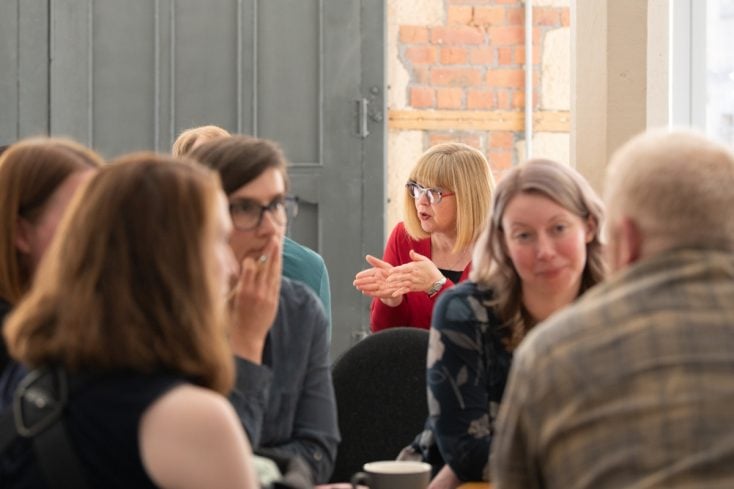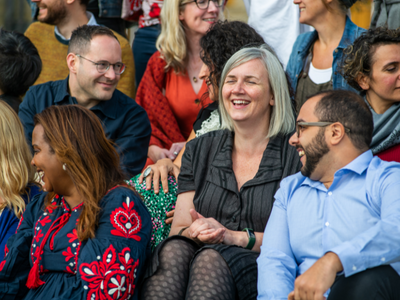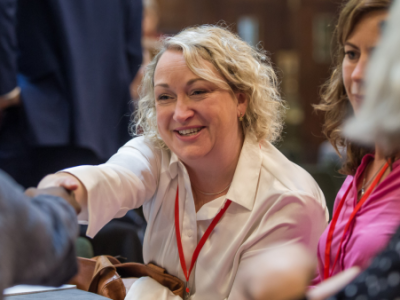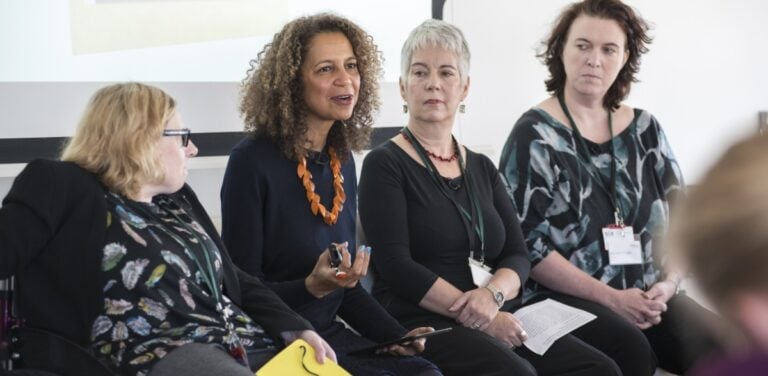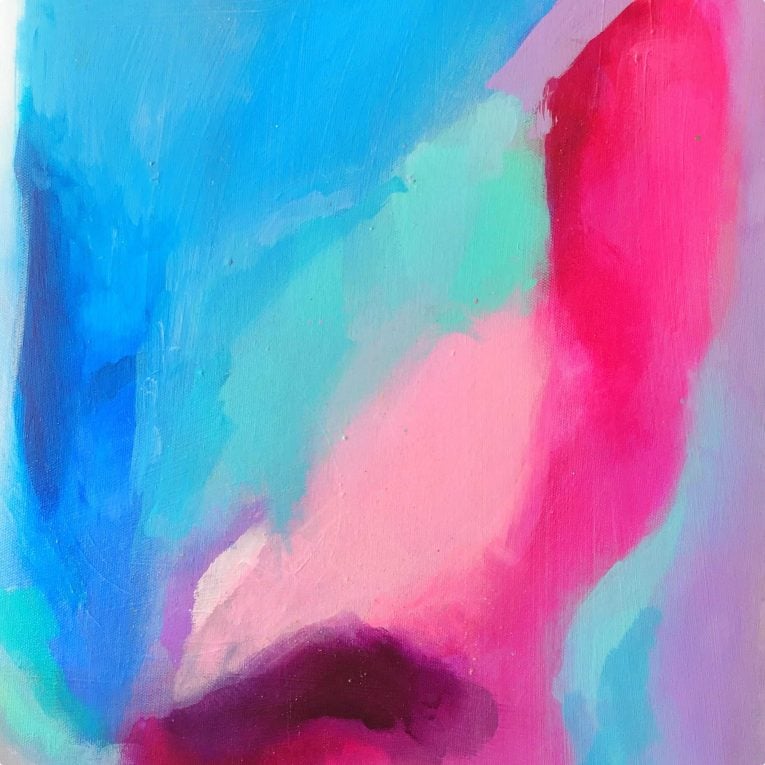Entrepreneurship through Mask-making
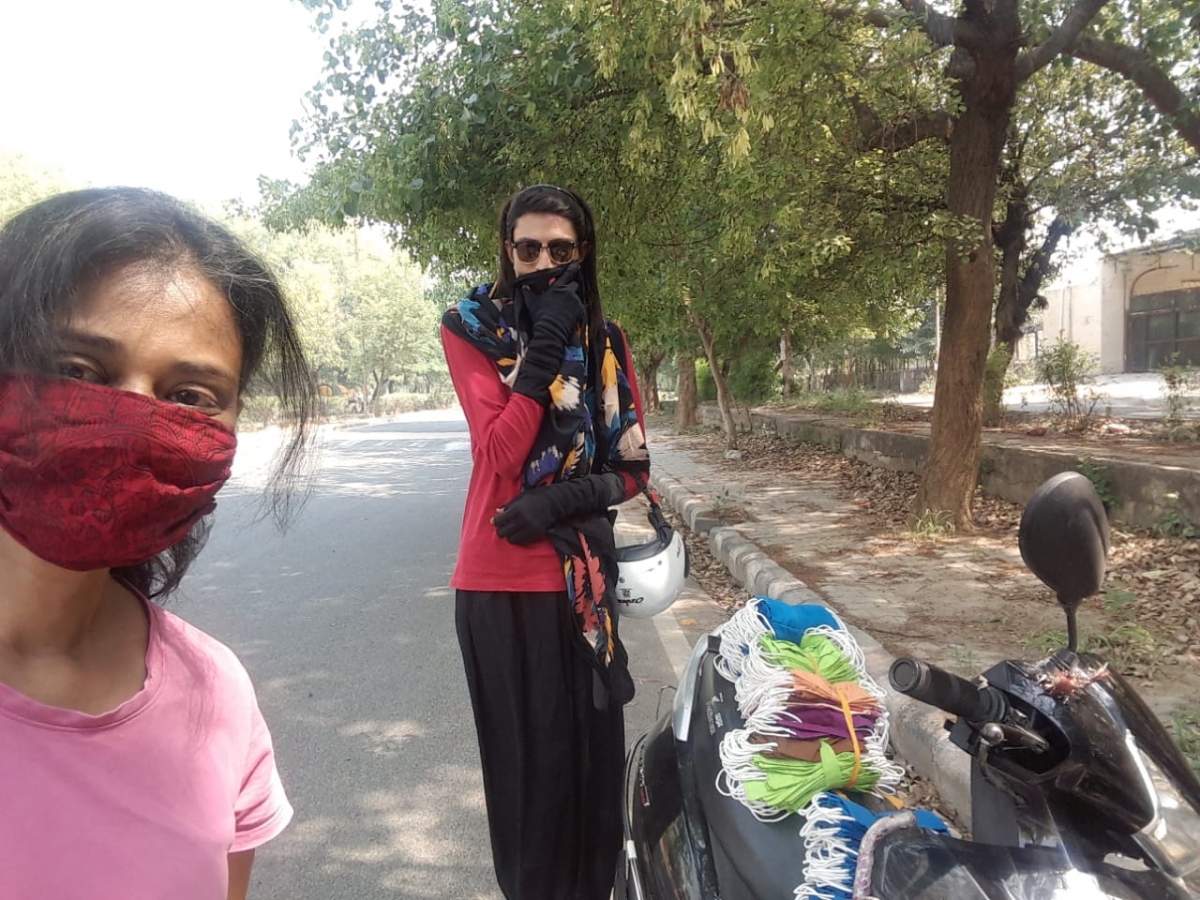
In February of this year, I returned from my second Chevening Clore Fellowship trip to London, buoyed by the short but very impactful experience of learning from great speakers, my Fellowship cohort – #Clore16, my wonderful mentor, and some valuable business meetings with museums, art organisations and more. All seemed great and I truly felt blessed to be a part of this journey. There was an unusual discussion everywhere though, that the coronavirus, killing hundreds in China, might come to the UK. I noticed that every airport on my journey had hoardings mentioning the virus but I did not anticipate what lay ahead…
My business supports the creative work of women artists in India. Our gorgeous hand painted Madhubani silk scarves, purses, ties and more, were catching the attention of the world and once home I got to work fulfilling new orders from the British Museum and a major corporate company in India. Hundreds of yards of silk and cotton fabric were being woven by our weavers’ clusters, while fabric and leather artisans were busy creating samples. Madhubani women artists were desperately waiting for the fabric to arrive for them to paint. And I was preparing for a further visit to London for my second Clore Leadership residential and secondment at the prestigious Tate.
At that point in time, the news started mentioning the increasing Covid-19 cases and deaths in Europe, Korea, the United States… and how India’s fragile healthcare system would cope with this pandemic. The numbers, in hundreds a couple of weeks back, now mentioned thousands. The Indian government was pulling its socks up to be pro-active, as we all knew the on-the-ground reality of looking after a 1.3 billion population facing such a contagious disease.
On 8th March, while returning with my family from Bangalore, I bought a mask for each of us to be safe at the airport. It cost us roughly £3 each for disposable masks. N95s were out of stock or sold at exorbitantly high rates. My thoughts went out to the people I work with. They hardly make this much in a day! How would my rural communities survive?
On 10th March, India announced a Covid-19 outbreak and impending lockdown. I was shocked. My plans, my orders and my upcoming travel, all came crumbling down. I wanted to help my artisans, weavers and other rural people but felt helpless. They knew very little about the virus. And now I couldn’t assure them income from the orders either, as the government stopped all production. I Googled frantically to understand techniques to make masks at home, thinking that the least I could do was educate them how to safeguard themselves in their homes. Clore Fellow Joycelyn Choi from Hong Kong, from my Clore16 cohort, had long been advocating the wearing of masks and had shared mask making techniques, which came in handy for my initiatives in India. I realised I had woken up to this much earlier than many others in India, thanks to her!
I was pleasantly surprised to find that a mask using cotton fabric was considered safe. Cotton fabric is in abundance and cheaply available in our part of the world. I worked with my 9 year old daughter to prepare a video tutorial for mask making. I released my video in multiple languages so that people from all areas could learn how to make masks, especially those with no means to purchase those ‘expensive’ masks. I encouraged my Madhubani artists to paint their masks so that, going forward, they could sell those to begin to get their livelihoods back on track.
My idea worked!
Hundreds of rural women started making masks for themselves and their loved ones, and adding a touch of their tradition by hand painting them in Madhubani art.
Soon I learnt that a shortage of PPE was risking the lives of frontline Doctors, Nurses and other healthcare professionals, so I organised small fundraiser to provide PPE to the local hospital. To compare rates, safety certifications and authenticity of PPE suppliers in an emergency, I also created and moderated an online group called Mask Warriors and shared it with government officials involved in PPS procurement.
Learning that essential service providers (vendors, security staff and sanitation workers) and even the police did not have enough masks, I started creating masks at home myself and distributed these locally. Within days, the Indian government’s think tank, NITI Aayog noticed my mask-making initiatives and invited me to deliver an online session on how to make masks at home. This was viewed by many women organisations across India.
I realised, while I did all this, women living in urban slums in and around Delhi were starving and families could do little to make a living. I then asked myself why couldn’t my organisation MITHILAsmita start mask production in-house and create economic opportunities for them. After all, we had significant experience of working creatively with fabrics and with hundreds of women-artisans, weavers and home-based workers. We needed to change our product – but the raw materials and the team were essentially the same!
Soon we launched a pilot of bulk mask production with our first cluster of women workers in Delhi. So far, we have produced and distributed more than 10,000 reusable cotton masks to frontline workers and underprivileged communities. Our last production of 2,000 masks went to the trans community, sex workers and HIV positive patients.
I read extensively about the cotton-silk hybrid mask research and their high filtration efficiency (against Covid-19) proven in many international laboratories. This has encouraged me to expand beyond cotton masks and create multiple mask variants, using natural silk and chiffon fabrics too. These samples have also been sent to the national textile Covid-19 lab in India for testing to verify the findings.
So, I have not been able to travel to back to London! My Clore Fellowship has been put on hold by the Covid-19 pandemic but I am proud to have been productive during such trying times and it feels gratifying to be at the convergence of so many things.
Sometimes what holds us from acting is sheer ‘fear of failure’. I might not have taken the plunge either, had it not been for one of my recent learnings through the Fellowship. Something magical happened in the first few days of our initial Clore residential in September that brought the entire cohort, with all its cultural differences, increasingly close together. As one big family, we each tried to become another person’s ‘handrail’ in a small or big way. Everyone listened to and shared in the pains and struggles of the other Fellows and tried to resolve them, be it personal or professional. Coaching, professional introductions or just a small conversation over dinner and wine, anything that helped! Only gradually did we realise that the Fellowship Programme was designed to make this ‘magic’ happen within the cohort. I saw its impact even more a month later when, within 36 hours, my cohort rallied to find me a UK partner for a key grant proposal that would otherwise have fallen through.
And I learnt – when you belong and care, you simply do everything in your capacity, without fearing failure and without worrying about the outcome. We simply act when it is time to act.
The fact that I could initiate this mask making activity at the given scale was because I cared for my artisans, my fellow citizens, and humanity as a whole. And I chose to do everything in my capacity to be there for my people! And in the process, gave that push to kick the virus away from the face of our beautiful planet and keep our human race safe.
